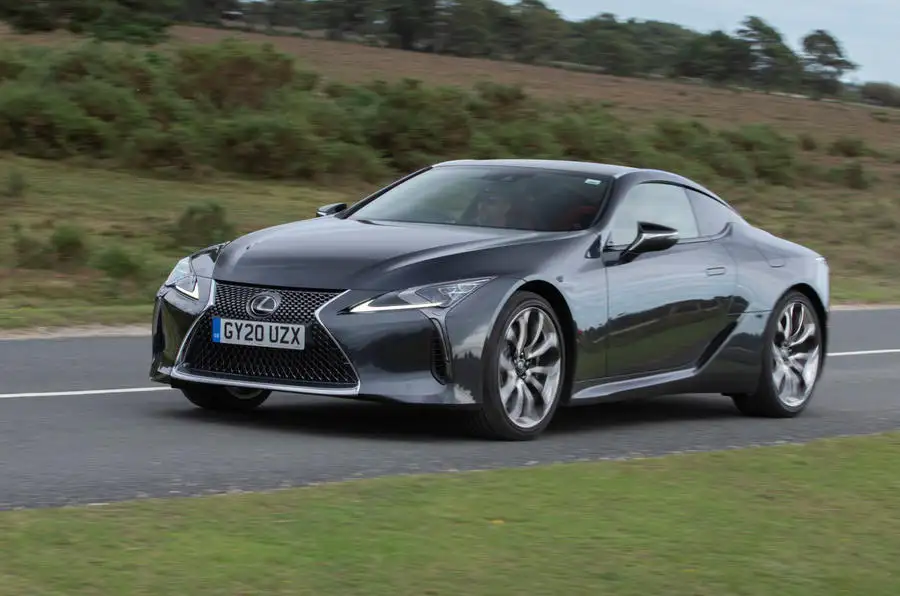In the lexicon of Lexus discussions, the mention of the iconic LFA, with its V10 prowess, often takes centre stage. However, amidst the more commonplace conversations surrounding the brand’s SUVs, there exists an understated contender that encapsulates the true spirit of Lexus — the enigmatic LC500.
Understanding Lexus as a brand can often feel like deciphering a cryptic code, and its appeal may not always be immediately apparent. Yet, in the form of the LC500, there emerges a vehicle that not only defies conventional expectations but also embodies the quintessence of Lexus values. This takes on added significance as Lexus assumes a pivotal role in Toyota’s foray into the electric vehicle domain.
The Lexus LC500, an unconventional coupe amidst a sea of practical crossovers and stately saloons, has been my primary mode of transport for the past three months. Opting for the V8 variant rather than the hybrid, I’ve found myself anticipating the brand’s electric future with newfound enthusiasm.
At first glance, the LC500 adheres to the expected aesthetic of a dynamic, sporty Lexus. The spindle grille remains a distinctive feature, serving as the genesis for flowing lines that set it apart from its stablemates. Its wide, low stance, coupled with pronounced haunches, exudes power even before the ignition is engaged. A closer inspection reveals meticulous design details in the headlights and mesmerizing mirrored rear lights.
Internally, the LC caters to a specific demographic. The seats embrace you upon entry, lowering you into a dynamic driving position. The cabin, featuring a traditional clock and a surprising inclusion of a CD player, maintains an air of sophistication. Despite its 2017 inception, the LC proudly retains a CD player, accompanied by a high-performance Mark Levinson sound system. The infotainment system, employing the touchpad system, persists from earlier models.
The true character of the LC unfurls when the V8 engine is ignited. Transforming from a refined demeanor to a muscular powerhouse in an executive guise, the LC embodies a juxtaposition akin to a UFC fighter donning Savile Row attire. Every accelerator input elicits an assertive response, accompanied by the perpetual blinking of the traction control light and the resonant roar of the V8. In motion, the LC, despite its two-tonne weight and broader dimensions, provides an exhilarating driving experience — less a precision tool and more a heavyweight champion with a spirited punch.
Now, what relevance does this petrol-powered revelation hold for Lexus’ electric future? The LC500, with its low profile, expansive width, and abundant torque, serves as a harbinger of what sports-focused EVs could embody. Picture replacing the V8 with an 800bhp electric powerhouse, and the result is a compelling and aesthetically pleasing EV contender.
Lexus has already embarked on its electric journey, unveiling plans for an electric supercar in 2021, part of a lineup comprising sixteen battery electric vehicles (BEVs). This EV, with aspirations to revive the spirit of the iconic V10-powered LFA, targets a remarkable 430-mile range and a swift 0-62mph launch in two seconds. Should Lexus successfully navigate the development of this flagship and its more pragmatic EV counterparts, it would undoubtedly fortify the brand’s standing.
While bidding adieu to the V8’s theatrics may evoke a sense of nostalgia, the advent of solid-state battery technology and steer-by-wire advancements signals not just an end for the LC but a commencement. The LC stands as a precursor to an electrifying era for Lexus, where the echoes of the V8’s roar may fade into the rearview mirror, giving way to a progressive and sustainable automotive future.

